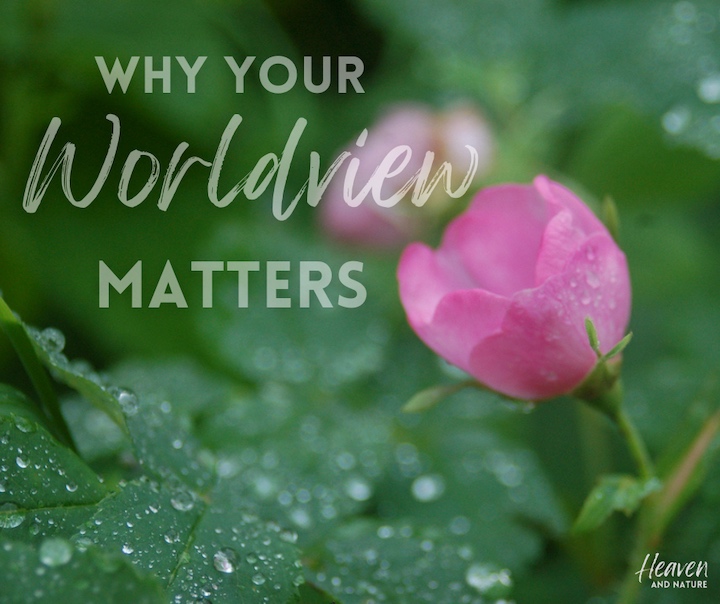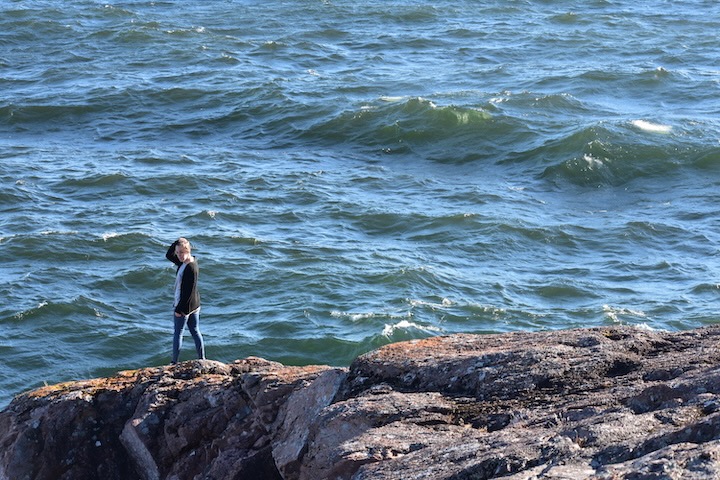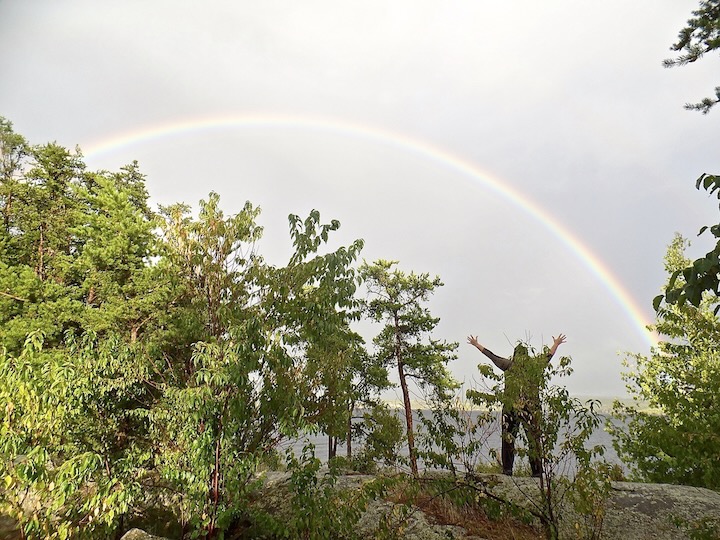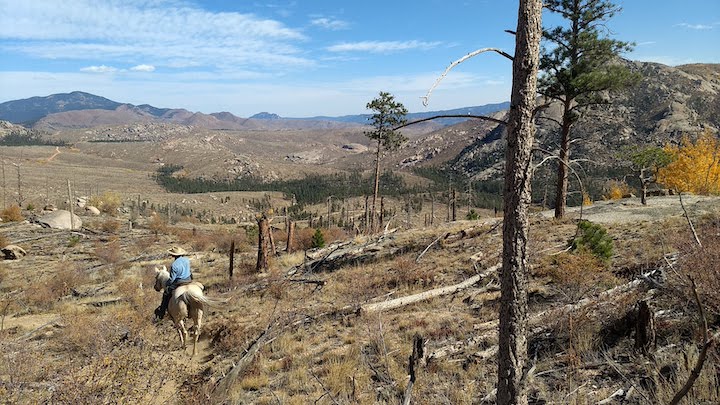Your “worldview” is the perspective by which you see, understand and interpret life. Worldview impacts what we believe, what we do and how we make our decisions.

People with differing worldviews interpret events, objects and people (themselves and others) differently.
Because this website, Heaven and Nature, is largely about the natural world, that’s what we’ll focus on the most when it comes to worldview.
The assumptions we have about what nature is and where it came from differ, depending on our worldview:
Three Common Worldviews about Nature
Purely Naturalistic Processes
The prevailing worldview of our American/Western society is neo-Darwinism or scientific naturalism.
In a nutshell, it’s the belief that nature is the product of random, non-directed forces. Everything in the universe can be explained in purely naturalistic terms.
This worldview requires eons of time—billions upon billions of years—because it believes with enough time, everything is possible. The universe, our planet and all of life came into being through incremental evolutionary processes.

Nature Itself is Divine
Another growing worldview, influenced by religions from the East, is that nature is itself divine. We are all (people, pine cones, puppies) equally gods. The goal of life is to focus on developing my own divinity, defining my own truth and goodness.
The Hindu religion holds this worldview, as does New Age or cosmic humanism.
Nature is Designed
The third worldview we’ll talk about here is that nature is designed. It’s complexity simply can’t be explained by random processes. There has to be an intelligent mind behind it—and not just humanly intelligent but fantastically intelligent.
Many leading scientists in the Intelligent Design movement don’t speculate what or who that mind is. They just have come to conclude that evolutionary theory falls far short.
The historic Judeo/Christian worldview goes a step further to believe this designer is supernatural: God Himself. That what the Bible teaches about the creation of the universe and everything in it is true.
How Worldview Plays Itself Out in Reality
Why does it matter which of these worldviews we believe? Because if we follow these differing worldviews to their logical conclusions, we end up in very different places.

We’ll look at just naturalism and design for this one:
The Logical Conclusion of Naturalism
If it’s all random processes, there can be no such thing as good and evil. Good and evil are only defined by whoever is in charge. Survival of the fittest.
A simple example of this is the idea of justice. For a neo-Darwinist, it wouldn’t be compatible with his or her worldview to say something or someone is unjust. Justice assumes good and evil—that an idea is right or it’s wrong.
If there’s no purpose behind everything, just random processes, what’s just or not comes down to mere opinion.
Another logical conclusion of this world view is that people are simply one more step in the evolutionary process. They have no meaning or purpose, because random processes have no meaning or purpose. They just are.
If this is true, people also have no value, other than what we give ourselves or what others give us.
The Logical Conclusion of Design
This is an interesting one if we look at both the Intelligent Design space (ID) and Judeo/Christianity. I’ve lumped them together here because they both believe the universe, including life, is the result of design by an intelligent mind.
It’s my understanding that the ID folks don’t normally go as far as to say who that intelligent mind may be. Or what the purpose may be for the design.
(Although, if we look around us we can conclude that the vast majority of designed things have purpose: transportation, communication, health and wellness, food production, creative expression…whatever.)

From here I’ll go right to the historic Christian faith, because that’s what I know best from my own life experience:
The biblical Christian worldview is that God created it all with purpose in mind. And because He is wise and powerful enough to have designed and created it all, He also has authority over it all. There is good and evil, right and wrong…and He has decided what those are.
So not only do people have purpose, but we’re accountable to someone—Him. We’re also accountable to each other, to treat others justly and well.
Not only do people have value, they have more value than anything else that’s been created. That’s because the Bible teaches that God created people “in His image,” or like Him. Some call it intrinsic value. People have value simply because they’re people.
And because people are accountable to God and He also values the rest of His creation, part of our purpose is to care for that creation: the natural world, ourselves and other people.
Have You Thought Through Your Worldview?
I’m not a scientist or a theologian, but I’ve done a lot of thinking and studying about what I believe, what I don’t believe, and why.
If you haven’t thought about it much, maybe it’s time?

Now, to be clear: just because we hold or assume a certain worldview doesn’t mean we always live by it.
Lots of people who assume naturalism resent it very much when others do things to them that they perceive as unjust or wrong.
Lots of people who assume design, even God’s design, don’t treat the rest of creation very well when it’s inconvenient (including me at times, I’m sorry to have to admit).
And lots of Christians live as if they’re only accountable to themselves, not God.
Here’s the thing about Christianity though, if it’s true: The Bible teaches that we are accountable to God, and someday will stand before Jesus, as a Judge. He will make the final decision about where we spend eternity.
(That’s another difference in the worldviews: neo-Dawinism says this world is all there is. Christianity says, no, this is only the first stage of an eternal life.)
So in that sense, it matters very much both what you believe and how you live your life. That’s the biblical Christian worldview.
But that gets into a whole other area, one of Apologetics (why we believe what we do). We’ll stop here for now.

Here’s more…
- The Value of Extended Time with God
- What is a Biblical Worldview?
- What Does Jesus have to do with Nature?
- How God Speaks through Signs in the Heavens - June 14, 2024
- 20 Meaningful Bible Verses about Nature - March 18, 2024
- Build Christian Community through Outdoor Adventure - February 17, 2024
